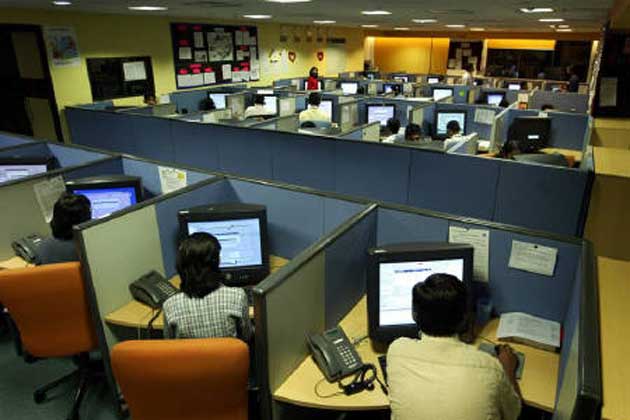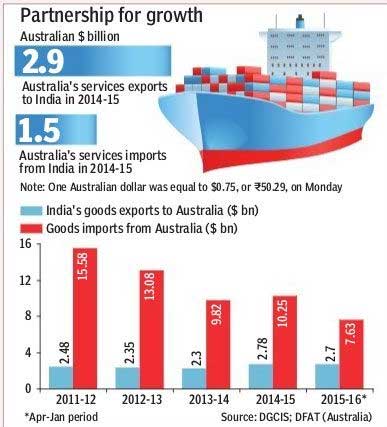Negotiation strategy shift: India, Australia could seal deal in services first, goods later

Financial Express | 12 April 2016
Negotiation strategy shift: India, Australia could seal deal in services first, goods later
By Banikinkar Pattanayak
India and Australia could clinch a deal in services and investments earlier than one in goods under the proposed free trade agreement (FTA), potentially marking a departure from the past strategy of concluding goods negotiations first.
Sources told FE that both parties could hammer out a consensus on less contentious issues such as services and investments first and a deal on goods will likely take some more time due to the difficult nature of such negotiations. Nevertheless, India would like to continue with talks on all the three pillars of the proposed India-Australia Comprehensive Economic Cooperation Agreement (CECA) until a broad-based outcome is achieved, a source said.
India’s final concessions on goods could hinge on Australia’s offer on services and investments, the source added.
The shift in strategy should be a positive development for the domestic industry, which has long complained of the government’s move to first cede huge concessions in goods in the hope of getting a good deal, often in vain, in services and investments.
For instance, the industry has been critical of the country’s FTA with Asean nations, saying that its offer on goods was hardly matched by gains in its subsequent deal in services and investments and resulted in massive merchandise imports from such countries and trade deficit.
India and Asean first signed the trade in goods agreement in August 2009, after six years of negotiations, while negotiations for services and investments were concluded only in December 2012.
The government is now examining the impact of some of the existing FTAs, such as the Asean one following industry protests.
Trade analysts say sorting out relatively easier issues in negotiations first is a pragmatic step as it cuts delays in clinching a deal.
However, even in services, Australia seems unwilling to cede much on Mode 4, which provides for freer movement of professionals and a more relaxed visa regime, fearing a backlash before upcoming elections (expected by January 2017). However, India, with its vast resources of skilled professionals, especially in the IT and ITeS sector, is interested in worthwhile concessions from Australia on Mode 4, even as the former is also willing to respond positively to other aspects of services should Australia make a substantial and meaningful offer, a source said. “The ball is in their court now,” the source added.
India is keen on services as they account for over a half of its gross domestic product (GDP).
Services trade between Australia and India stood at A$4.4 billion in 2014-15, according to data by the Department of Foreign Affairs and Trade of the Australian government. While Australia exported services worth A$2.9 billion to India, its service imports from India stood at almost A$1.5 billion. One Australian dollar was equal to $0.75, or Rs 50.29, on Monday. India’s major services imports from Australia include education-related travel and personal travel, while personal travel (excluding education) and professional, technical and other business services are among its major exports to that country.
Commerce minister Nirmala Sitharaman had a meeting with Australian trade envoy Andrew Robb last week, and the Indian side is learnt to be keen on a logical conclusion to the negotiations. Sitharaman said last week that India was negotiating with Australia for a better deal in services and both the sides were probably getting closer to a deal.






